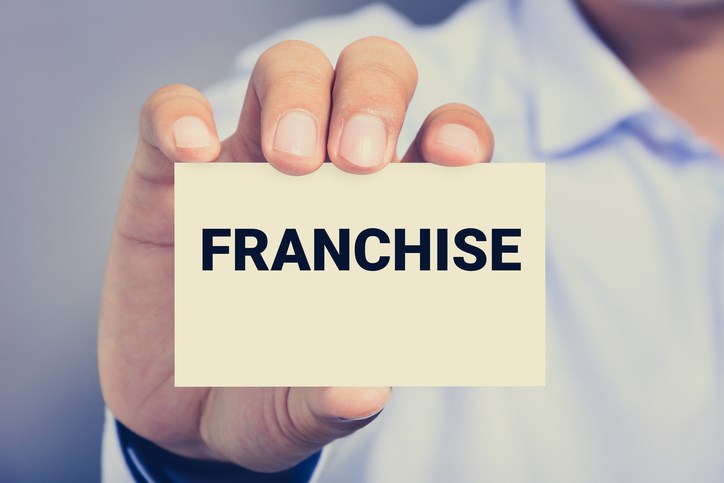Franchising is a huge, rapidly growing industry with over 3,000 franchises in North America, operating over 800,000 units, and employing over 18 million people. Franchises can be an excellent route to business ownership – there are products, systems and processes already in place, and a buyer is not required to start from ground zero. However, for many franchises the returns are marginal and a buyer must conduct extensive due diligence prior to entering into any agreements.
A successful franchise purchase requires both the franchisee and the franchisor to be satisfied that they have found a great fit. A good franchisor will be interested in more than the amount of money the franchisee has available. They will want to ensure that the prospect has the business acumen, enthusiasm and work ethic to operate a successful location.
Hard-working team players who are coachable do best in a franchise. A franchisor will often demand that a buyer be a full-time owner/operator. Successful franchisees are open to accepting support from the franchisor and other franchisees. Entrepreneurs who want to reinvent the wheel or create something new and thrive on doing things their own way will not experience success in a franchise environment.
Franchisees are buying into the perceived strength of the brand name, product or service, and location. The value, like any other existing business, is based on the bottom line to the owner. Franchises that enjoy long-term success focus on aligning corporate goals with those of its franchisees, ensuring both have opportunity to turn a profit.
A business broker can be a significant asset during the sale of a franchise location. Their role is to cultivate and qualify prospects, understand prospects’ needs and interests, and evaluate personalities.
By engaging a professional business broker, franchisors will often mitigate their financial investment and risk of hiring an in-house sales team. The broker’s expertise can help potential franchisees have a comprehensive understanding of the opportunity. Thorough scrutiny by all parties will ensure that franchisor and franchisee enjoy a fruitful partnership.
The business broker will market the opportunity using multiple avenues, often generating over 100 responses for a quality franchised food business. However, statistics indicate that fewer than 5 per cent of all inquirers will ever buy a business. The genuine potential buyers must be quickly established.
The first step is connecting with the potential buyer to gauge communication skills, team player personality, and determine whether the inquirer has relevant skills and experience for the opportunity. It is also essential to confirm their current credit rating, and whether the buyer has the required liquid cash available. Financing is available from the banks and the Business Development Bank of Canada; however the franchisor will often stipulate that a new franchisee must invest between 40 per cent to 60 per cent of the purchase price with cash on hand to prevent the new owner from being encumbered with too much debt.
Following a positive discussion, the inquirer will be required to sign a confidentiality agreement and complete a simple buyer questionnaire that captures their qualifications and intentions.
Initial information is then shared with the applicant including existing location, sales history, current financial statements, lease information and general information such as royalties, marketing fees, etc.
If a buyer indicates they are interested, after the initial review, they will be asked to complete the franchise application form, which includes a net worth statement. A telephone interview will be arranged between qualifying applicants and a key leader at the franchise head office. This allows both parties to get to know each other. If that conversation is satisfactory to both parties, further information is shared with the applicant including the franchise disclosure document.
Due diligence
Due diligence performed by the applicant should include a one-day on-the-job experience, a discovery day at head office to meet the key players, and contacting existing franchisees to discuss their experience working with the franchisor. Applicants will be encouraged to consult with their financial and legal advisers.
Once both parties decide to proceed, a letter of understanding will be drafted by head office for signature and payment of a deposit will be arranged. Franchise agreement documentation will then be drafted and signed. Extensive training then occurs, prior to taking over, often two to four weeks for the main full-time owner/operator. There will be ongoing on-site support after taking possession of the business, especially for the first few months.
Franchises can be a smart business option for the right buyer. As always, it is “buyer beware” and due diligence is an essential step in the purchase process. Buyers must consider the products or services being offered, brand name recognition, the local competition, the level of support available from the franchisor, as well as their own long-term business goals.
Ken Wither is a full-time business broker, a certified business intermediary with the International Business Brokers Association, and serves on the board of directors of the Canadian chapter. He works with business sellers in Alberta and B.C. He is with Acuity Business Group (www.acuitybusinessgroup.com), with offices in Kelowna and Calgary.



